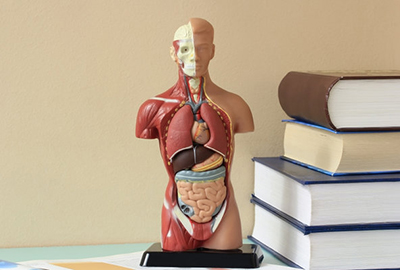
Source: well.blogs.nytimes.com
In the field of medicine, one cannot help but get a little over concerned when it comes to health related issues. A simple rash, pain or slightly prolonged cough is presumed as a serious symptom especially when you’ve learnt Pathology and Microbiology. You then spend hours online searching for the probable disease that best describe the symptoms you have. Often the diagnosis will be some rare frightening one that you stumble upon online or in those thick textbooks.
Astoundingly, the symptoms and diagnoses differ each time you learn something new or enter a new rotation. I have indeed experienced this myself. For a few months I had been having severe itchiness on the fingers of my right hand. Contact with detergent and spicy food became so painful and caused my fingers to swell up in crimson red. In fact, my skin was so dry that I even cut myself without knowing it. I resulted to Band-Aids and moisturizing lotion daily to prevent further cuts and wounds.
Being my typical self who always procrastinates when it comes to seeking treatment from a doctor, I consulted my close friend/colleague who happens to be a hypochondriac (a person who worries excessively about having a serious illness) about my condition. She examined my hand and asked a few relating questions about it. After a moment of silence, she finally came to a diagnosis.
“I think you have Psoriasis. Go to the doctor before your whole skin starts peeling off” she said. I was flabbergasted. You see, I have had several encounters with patients who have had Psoriasis in the wards. I know how disfiguring and painful it could be. Besides, it could affect various other parts of the body.
On the other hand, my friend kept on explaining about Psoriasis. She included few other differential diagnoses of skin diseases that were unheard of to me. Troubled, I excused myself and promised her that I would consult a dermatologist as soon as possible. That was not the first time she reacted in such a way. Previously, she was worried about having contracted Tuberculosis after coughing non-stop for 3 weeks. True enough that Tuberculosis could not be ruled out if you are coughing for a long period of time but in her case, her presenting symptoms were not suggestive of it. Consequently she requested a physician to do a full Tuberculosis work up for her. Fortunately, her cough resolved even before the results of the tests were available. Evidently and thankfully, it was negative.
What she has is actually a condition called Medical Student Syndrome. It is a phenomenon in which medical students notice harmless things about their health and then attach it to the things they have learned and exaggerate their significance. It is also called “nosophobia”, meaning irrational fear of contracting a disease. It was first discovered in the mid-1960s after the publication of two articles from prominent psychiatric departments. It was found that 70 percent of medical students complained of symptoms of various illnesses they had studied. One student was convinced he had schizophrenia during his psychiatric rotation but later changed his diagnosis to Meniere’s disease, an inner ear disorder. He had neither condition.
One of the reasons why medical students think that they could be suffering from diseases is because they often lead relatively unhealthy lives. You are a student. You eat lousy food, drink Red Bull to stay up, lose sleep and fill your head with countless horrible diseases that exist. The moment you sense something is wrong with you, you cannot help but to think of the worse that could happen. Just because you know the exact location of the appendix, that does not mean an innocent stomach cramp is a sign your appendix is about to burst.
Statistically, 70-80% of medical students report experiencing medical student syndrome at some point during their studies. They are also far more likely to diagnose a family member or a friend with horrendous diseases. Though fret not, this would not last forever. Just be aware that you are vulnerable and may be subjected to this condition. As for my skin condition, my dermatologist concluded that what I have is simple eczema, easily treated with super strong aqueous cream for moisturizing and topical steroid for the itchiness.
Dr. Anis Nabillah is a house officer working in a tertiary hospital in Kuala Lumpur. She is also an editor for the Malaysian Medical Gazette.
References:
- http://well.blogs.nytimes.com/2013/09/05/when-med-students-get-medical-students-disease/?_php=true&_type=blogs&_r=0
- http://medipathways.com/medical-student-syndrome/
- http://io9.com/5978898/the-bizarre-psychological-syndrome-that-affects-only-medical-students
